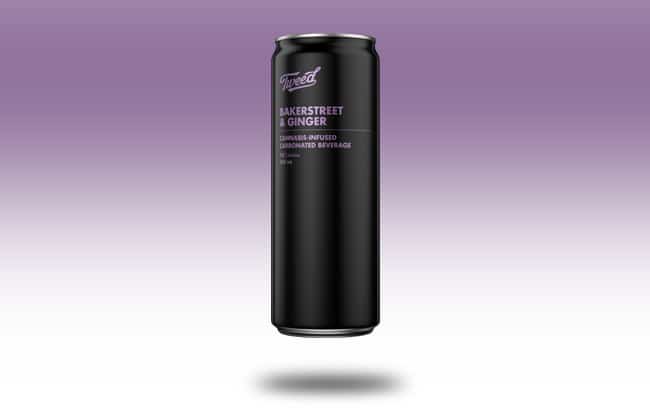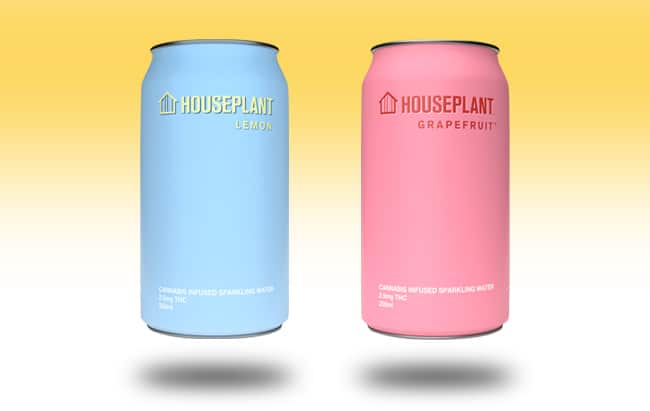When spirits giant Constellation Brands first invested in Canadian cannabis business Canopy in 2017, infused beverages were quickly identified as a potential growth segment. Nearly three years later and an additional $3.8 billion in funding later, that theory is beginning to be tested.
Canopy’s entrance into cannabis drinks — in the form of the brands Tweed, Houseplant and Deep Space — comes during an uncertain time in the nascent Canadian cannabis market, which saw underwhelming revenues of $1.2 billion USD in 2019, according to research firm the Brightfield Group. Revenues are expected to more than double in 2020, with the expectation that “Cannabis 2.0” products, including beverages, will play an important role in growing margins and driving velocities. Yet the space has unique characteristics that tease its unique potential and appeal: while drinks are not expected to match the popularity of edible products, at least initially, the less-crowded field could provide more room for exploration in branding and positioning.
According to a report from Brightfield on the Canadian market: “Because beverages have a variety of use cases and are relatively new to the cannabis market… this is one of the spaces where cannabis companies are likely to be more innovative both in how they produce products themselves and in how they position the brand going forward.”
But the new brands, announced last November, haven’t had an easy path to market: Originally set for launch in January, they were delayed to allow Canopy more time to scale up manufacturing. With Tweed hitting shelves in March and Houseplant’s first beverage arriving in May, Canopy is just starting to see how consumers are responding to their first forays. According to the company’s director of innovation, Paul Weaver, the company is betting that approachable, familiar, moderately dosed beverages will help it reach the nearly 75% of Canadians who do not currently consume cannabis.
“Our research and Constellation Brands’ research suggests that consumers who are most interested in cannabis-infused beverages are the potential consumers who maybe have never tried cannabis before or never been high before,” he said. “It requires us to be extremely empathetic in terms of how we design products, how we approach potency, how we approach flavors.”
The initial lineup reflects that strategy: in Tweed, Houseplant and Deep Space, Canopy is seeking to establish unique identities for each brand while generally being as inclusive as possible. And while Weaver admitted that the coronavirus pandemic has limited its ability to “laser focus” on a target consumer, all three products are differentiated enough to fit a range of use occasions.

Tweed offers the widest range: released in March, the brand includes both carbonated and non-carbonated drinks in 335mL cans and 150mL bottles, respectively. Each contains three SKUs tailored to a specific cannabis strain — Houndstooth (sativa), Bakerstreet (indica) and Penelope, a hybrid of THC and CBD. Echoing Weaver’s thoughts on building empathy with new consumers, the distilled product offers a more potent experience (10 mg of THC per bottle), while the sodas are presented almost like light cocktails, featuring 2 mg of THC per can and names like Penelope & Tonic and Bakerstreet & Ginger. The idea, Weaver said, is to create products that can draw in new consumers, but also excite existing cannabis users enough for them to share them with less experienced friends.
“If you are trying to appeal to new cannabis consumers, sometimes you need someone to facilitate that experience and to help them try cannabis in a safe space,” he said. “We want to make sure we are creating an evangelical base of cannabis beverage fans that want to tell others about it so they can grow the category and introduce others to the cannabis category that wouldn’t have considered it before.”
Like Tweed, Toronto-based Houseplant also sells a range of cannabis products in Canada, including flower, pre-rolls and softgel capsules. With respect to attracting the canna-curious demographic, Weaver said, Canopy has a “familiar friend” in the form of Houseplant’s co-owners, actor Seth Rogen and writer Evan Goldberg. As creative collaborators on a range of film and TV projects (Superbad, Sausage Party, Pineapple Express), in which cannabis often plays a role in the narrative or characters, the pair bring cultural credibility and celebrity appeal to both curious newcomers and experienced users. Houseplant’s first beverage product is a naturally flavored grapefruit sparkling water with 2.5 mg of THC, with a second variety, lemon, launching later this year.
While Rogen and Goldberg’s involvement gives Houseplant heightened visibility, Weaver noted that there are “nuances when you have people of that notoriety promoting cannabis products.” He emphasized that the launch is as much a validation of the company’s distillation technology as it is of the brand itself.
“Houseplant grapefruit is a perfect example of what this technology can do,” he said. “Light carbonation, clear liquid, great flavor. If we can deliver that type of flavor, imagine what we can do if we want to add a lot more complexity. We are able to demonstrate with a product like Houseplant the full potential of our beverage capabilities.”
The reception for Canopy’s first crop of releases will influence where the company goes with innovation from this point on: for the moment, Weaver said the strategy is focusing on depth of inventory before expanding its breadth of offerings. Starting with a “limited but very distinct” group of products, he said, will allow Tweed, Houseplant and Deep Space — a carbonated drink with 10 mg of THC per 222mL can — to “develop consumer loyalty and repeat purchase” before additional flavors and brands are introduced. Despite having just launched, Tweed’s market performance — it was the top-selling cannabis beverage in Ontario in March, as revealed in Canopy’s earnings call — has been encouraging.
“The key is that now that we are in-market, we have the beautiful luxury of context,” Weaver said. “Now we get to gauge consumer reactions, ask them questions and we get a rich source of insights around the ideal product for the ideal consumer. Moving forward, I think we are going to be rooting it in consumer insights and what fan favorites start to percolate to the top and then build a strategy around the best of the best.”
However, that same earnings call also underscored the stakes for Canopy’s beverage segment: the company reported a net loss of approximately $946 million (C$1.3 billion) for the fourth quarter of 2019, missing analysts’ revenue projections by 16.2% despite a 76% increase in sales. The company has lost money in 15 of the past 16 quarters and has seen turnover in upper management, with David Klein appointed by Constellation Brands in January as the brand’s new permanent CEO following co-CEO Bruce Linton’s dismissal in July 2019.
“If we are designing products that meet this new consumer’s needs, we are confident that there’s a huge population of people that will want variety and choice,” Weaver said. “There are a lot of different beers, wines and cannabis-infused beverages in the world. For us, we know that the population for this new cannabis consumer is pretty big, and there’s little risk of overlap.”
Note: A previous version of this story stated that Houseplant was based in British Columbia. The article has been updated.

